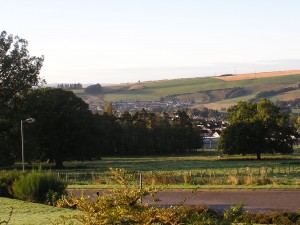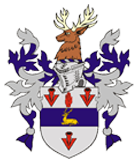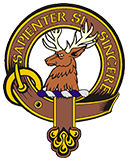History of Clan Davidson

Modern view of Dingwall as seen from the front drive of Tulloch Castle
Here is a brief history of Dingwall Castle taken from History Page of the City of Dingwall’s website.
The fortress at Dingwall, probably first established by the Norse, became one of the thirty royal castles of the Scottish kingdom. During the War of Independence the Castle was garrisoned by the forces of Edward I of England. It was captured for Robert Bruce by William, Earl of Ross. From the Castle in 1314 the Earl led the men of Ross to play their part in the Battle of Bannockburn. In reward King Robert in 1321 granted the Castle with the town and lands of Dingwall to the Earl of Ross.
The Castle became the main residence of the Earl of Ross, who met with the lords of his council on the moothill of Dingwall, just as earlier the Viking Earl and his chieftains had done.
In 1411 Angus, Lord of the Isles, unsuccessfully sought to win his claim to the earldom by seizing Dingwall Castle. Eventually in 1438 Alexander, Lord of the Isles, was recognised as Earl of Ross.
Alexander settled in Dingwall where he lived as a great prince. From there, as one of the two Justiciars of Scotland, he ruled the whole of Scotland north of the Tay. His son John was not as successful. He unwisely made a secret treaty with Edward IV of England to share Scotland between them. When James III, King of Scots, discovered the existence of that treaty, he had the earldom confiscated in 1475. Ever since, the second son of the monarch has held the title of Earl of Ross. The Castle and the burgh again became royal possessions.
Favoured by the Crown, the power of Clan Mackenzie spread throughout Ross. No longer needed for control of Ross, the Castle of Dingwall was abandoned by the Crown about 1600. The Castle slowly fell into ruin and was used as a quarry until it was finally levelled in 1817, leaving visible, but few, fragments.
With administration of Ross no longer centered on Dingwall Castle the town after 1600 slipped into a state of poverty, but clung on to its status as a royal burgh. Events in the eighteenth century brought the beginnings of a revival in the town’s fortunes.

